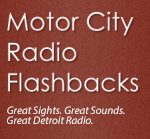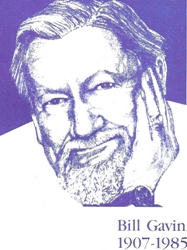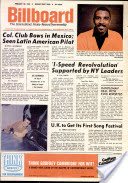 From the MCRFB NEWS archive: 1965
From the MCRFB NEWS archive: 1965
The Bill Gavin Newsletter (February 1965)
From the Desk of Bill Gavin Billboard Contributing Editor
D U R I N G T H E P A S T S E V E R A L weeks I have talked with a number of radio people about their approaches to programming problems. While no two people see their problems precisely the same way, there is enough general agreements among radio program planners to indicate the development of a new trend. There appears to be a growing objective in applying the objective approach of the pop format operators to the field of so-called middle-of-the-road music.
Strictly speaking, there is nothing new about such an idea. It has been applied successfully for a number of years by some of the leading stations in the U.S. and Canada. Among the better known pioneer in the field have been WIP, Philadelphia; WIND, Chicago; WEW, St. Louis; KSFO, San Francisco; CFRB, Toronto and CKNW, Vancouver. While not all of these stations rate No. 1 in their markets, they deliver a sufficiently large number to their advertisers so that their net revenues are highly gratifying to their owners.
There are many other stations, some with big power and preferential dial position, and most with a fine tradition of public service and community leadership, that have watched their audiences slipping away through the years without doing much of anything about it. They have noted with envy the strides that have been made by their competitors, yet until recently have taken a few steps toward modernizing their program content and personnel.
 S T A T I O N S I N M A J O R M A R K E T S in their attempts to streamline their operations, have encountered union related problems. The technical and performer unions had established jurisdiction over various operational tasks, and they were unwilling to relinquish contract provisions that gave employment to their members. Some New York stations at one time were required to have four or five men in the control room for a deejay show or a newscast. In Chicago, the musician union has jurisdiction over the record spinning assignment. In San Francisco, some stations must have staff announcers in the booth to handle station breaks for the deejay shows. However, most of these problems have been worked out so that stations are not placed at a competitive disadvantage by virtue of the old union distinctions between network stations and independents.
S T A T I O N S I N M A J O R M A R K E T S in their attempts to streamline their operations, have encountered union related problems. The technical and performer unions had established jurisdiction over various operational tasks, and they were unwilling to relinquish contract provisions that gave employment to their members. Some New York stations at one time were required to have four or five men in the control room for a deejay show or a newscast. In Chicago, the musician union has jurisdiction over the record spinning assignment. In San Francisco, some stations must have staff announcers in the booth to handle station breaks for the deejay shows. However, most of these problems have been worked out so that stations are not placed at a competitive disadvantage by virtue of the old union distinctions between network stations and independents.
One manager, who doesn’t have the problem of union contracts, sees it this way: “The big money in radio doesn’t necessarily go with big ratings. We’re doing just about as well as the leading top 40 station, and we show only about a third of their audience. But we should be doing better. So we’re hiring some new people — a program director, a music director, and DJ’s — and try to sound as modern as we can without programming that greasy-kid stuff.”

NBC radio’s appointment of Mike Joseph to head up its owned radio stations illustrates the growing acceptance of conservative ownership of the fact that modern radio demand certain progressive changes in conventional patterns of of operation. Mike has had extensive experience as a program consultant in setting up top 40 operations. It was under his guidance that WABC-New York broke away from its traditional pattern and entered the pop format field, where it thrived under the program direction of Sam Holman. Mike later set up the new format for WKNR-Dearborn (Detroit market), which proved an immediate success. He has also worked with middle-road stations such as WINZ, Miami and WEW, St. Louis, although this fact is no so generally known. With NBC he has brought Mark Olds, Glen Bell and Bob Hale into WMAQ, Chicago. It was rumored, because of Mike’s former successes with top 40 stations, that he would direct his NBC stations along the same course, but such not proved to be the case in Chicago.
N O R I S I T L I K E L Y T O be the case with KNBR, San Francisco, where Joseph is currently at work setting up changes in policy and personnel. He recently told me, “We’re expecting to be an overnight sensation. We’re building carefully for the future. It takes a lot of time and hard work to make changes in a big station.” He also emphasized, “Just because we may hire people with a top 40 background doesn’t mean that we’re going to be a top 40 station. Practically everybody today who is qualified as a modern radio man has gotten a least a part of his experience with top 40 radio.” END
___
(Information and news source: Billboard; February 20, 1965)
![]()
